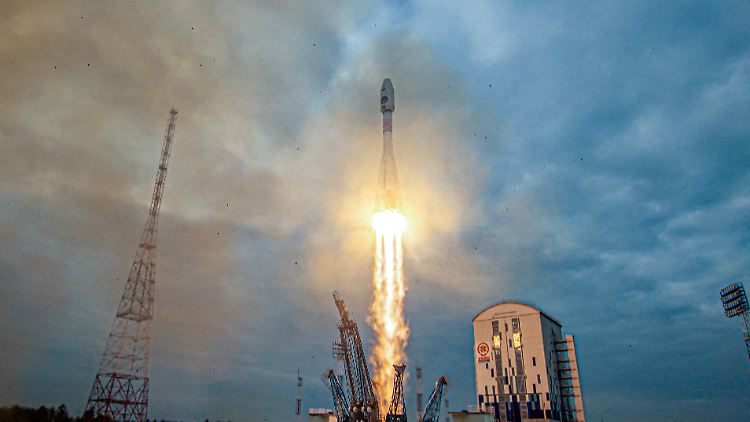The mission of the "Luna-25" probe was meant to be a prestige project for the Russian space program. Moscow anticipated collecting soil samples and gaining further insights about the Moon. However, complications arise even before landing, leading to a crash.
Russia's first lunar mission in decades has failed. The "Luna-25" probe impacted the lunar surface due to an "anomalistic situation" and ceased to function, as stated by the Russian space agency Roscosmos in Moscow. The reasons for the probe's loss are being investigated, with a commission being set up for this purpose. The first spacecraft since 1979 was supposed to land on the Moon's South Pole on Monday.
The proud spacefaring nation aimed to demonstrate its capability for scientific achievement despite ongoing conflicts such as the war in Ukraine and Western-imposed sanctions. Russian politicians had emphasized the country's resilience following the successful launch of the probe on August 11th. The probe had even transmitted initial images of the lunar surface.
On Saturday, Roscosmos initially reported an unexpected incident. In preparation for its imminent landing on the lunar surface, the probe was set to enter a new lunar orbit at 14:10 Moscow time (13:10 CEST). "During the operation, an anomalous situation occurred onboard the automated station, preventing the maneuver from being executed under the specified parameters," it was stated. "Luna-25" was part of Russia's lunar program, which envisions establishing its own space station on the celestial body by 2040.
The probe was launched more than a week ago and entered lunar orbit last Wednesday. Since then, the 1800-kilogram spacecraft has been searching for a suitable landing site, according to Russian sources. On Thursday, Roscosmos presented a photo of the lunar surface taken by the probe. This marked the first lunar mission since the Soviet spacecraft "Luna-24" in 1976.
Originally, "Luna" was meant to be underway much earlier. The first planned launch date for a lunar probe was in 2012. Last year, a new launch was targeted for May, but technical issues caused further delays. Originally, Roscosmos collaborated on the lunar program with the European Space Agency (ESA). However, after Russia's invasion of Ukraine in February 2022, the ESA terminated its cooperation with Moscow.


